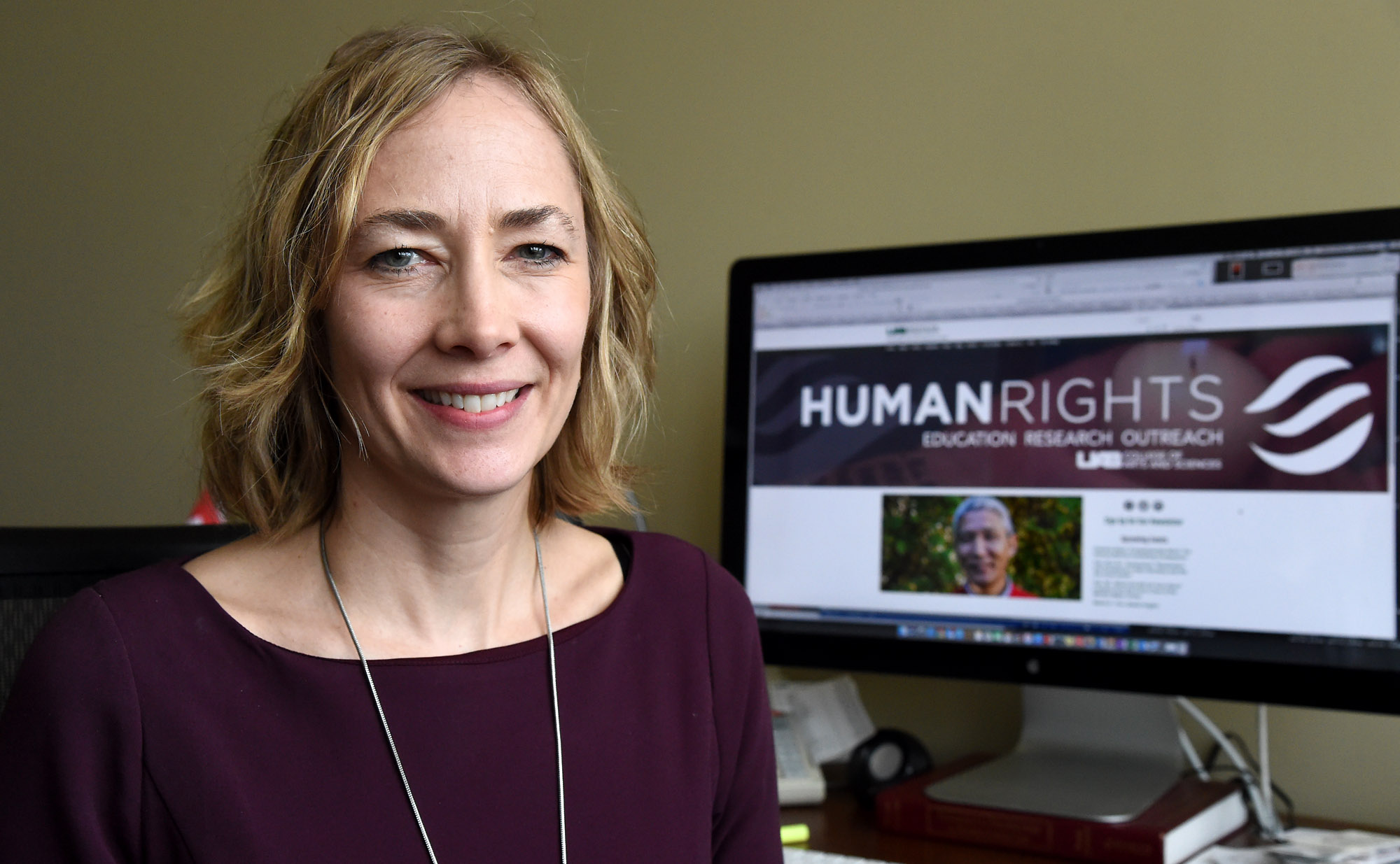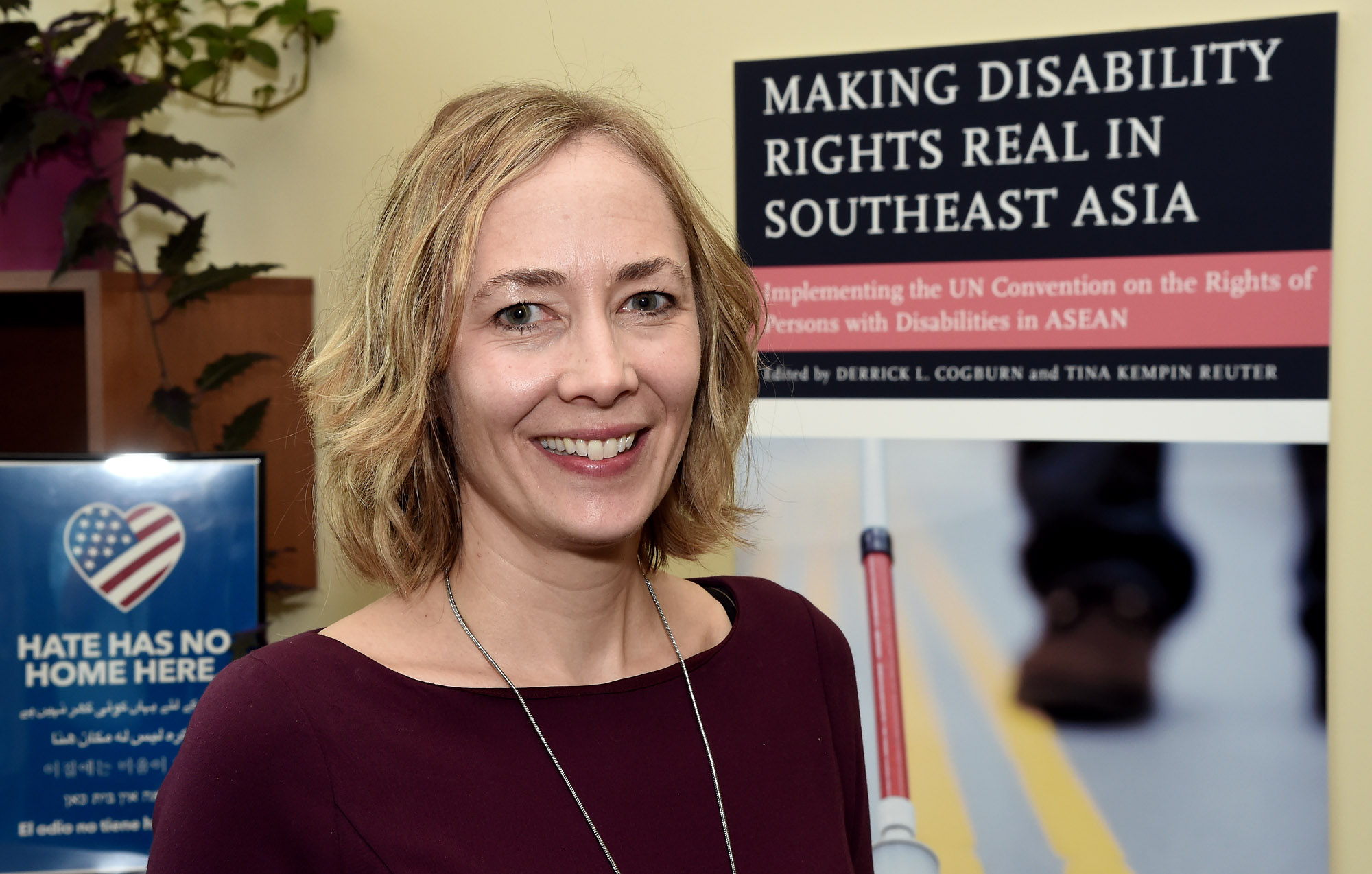
By Anita Debro
Special to the Birmingham Times

Riva Hirsch and Josephine Bolling McCall are from opposite sides of the globe, but both have suffered trauma from human rights violations. Hirsch was born in the Ukraine, and McCall is from Lowndes County in South Alabama. Hirsch is a Holocaust survivor who fled her home when she was just seven years old, and McCall’s father was lynched when she was only five.
Last month, the University of Alabama at Birmingham’s (UAB) Institute for Human Rights (IHR) brought the two women together to talk about their histories during a two-day symposium. One focus of the IHR is to start conversations about human rights violations not just in Birmingham but around the world, said Tina Kempin Reuter, director of the institute, which opened its doors in 2016 and is housed under the UAB College of Arts and Sciences.
“The IHR serves as a platform for dialogue, discussion, and collaboration on issues related to human rights, social justice, and equality in our community,” she said. “Our vision and goal: to be a forum for dialogue and bridge-building across racial, religious, socioeconomic, and political boundaries.”
With concerns growing daily about the loss of human rights—from police shootings to the fears of immigrants faced with discrimination and deportation—the UAB IHR was established to provide education, research, and outreach.
Reuter, an anthropology professor from Switzerland, was hired to add a global focus to the institute, while also addressing the issues that some groups deal with or have dealt with in Birmingham. So, the IHR collaborates with other local organizations on projects that foster conversations about human rights and social injustice.
For example, the institute worked last year with the Birmingham chapter of Black Lives Matter, the Birmingham Islamic Society, and other underrepresented groups in Birmingham for the “Stand as One: Empowering Marginalized Voices in Birmingham” event. And two weeks ago, students and educators listened to McCall and Hirsch at a symposium titled “Bystanders and Complicity in Nazi Germany and the Jim Crow South.”
“You have to go around speaking to and educating youngsters,” said Hirsch, imploring a large crowd to at the symposium to not forget the Holocaust.
“We really must continue the discussion,” said McCall, who wrote a book about her father’s death, “The Penalty for Success: My Father Was Lynched in Lowndes County, Alabama.”
Spreading the Word
Through the UAB IHR, students can earn a master’s degree in the Anthropology of Peace and Human Rights, and this fall the institute will offer a new minor for undergraduate students in human rights.
The program also has a blog, “Human Rights,” which is staffed by four graduate assistants and seven undergraduate interns. Reuter saw the blog as an opportunity for the students to exercise their writing muscles and get out the message about timely human rights discussions. Most recently the blog featured diverse topics, ranging from transgender athletes at the recently completed winter Olympic Games to nonviolence as a part of black identity.
Graduate student Ajanet Rountree is a writer for the blog: “What we are putting out is academic, but it is tailored for people who don’t have an academic background.”
The blog helps educate readers on what constitutes human rights, Rountree said.
“We are taking a topic, breaking it down, and answering the question, ‘Why does this matter?’” she said. “The blog is there to help make you more aware of what is going on in the world, not just about problems to address in America.”
Anti-bullying
Reuter said she is currently working on an anti-bullying curriculum—Project Hope—to be offered in schools throughout the state; the effort was commissioned by the U.S. Attorney’s Office of the Northern District of Alabama to help elementary school students become more aware about bullying, online conduct, violence, and other delinquent behaviors. The IHR was asked to come up with a curriculum for fifth graders to address bullying inside and outside of schools.
“Project Hope is not your usual one-size-fits-all curriculum,” Reuter said. “It was important to us that all schools in Alabama—regardless of size, socioeconomic situation, rural or urban setting—could use our curriculum.”




